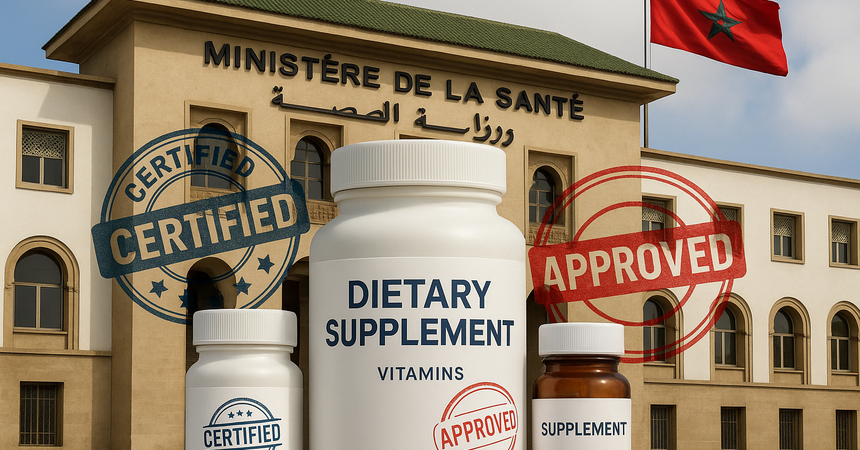Morocco is one of the most open and promising markets in North Africa for dietary supplement manufacturers. The country actively develops imports, and the population shows a stable demand for nutraceuticals, vitamins, and natural supplements.
However, despite the growing interest and demand, entering the Moroccan market is impossible without official product registration, which involves specific procedures and strict requirements.
Who Regulates the Dietary Supplement Market in Morocco?
Dietary supplements in Morocco are regulated by the Ministry of Health and Social Protection (Ministère de la Santé et de la Protection Sociale). In some cases, the National Office for Sanitary Food Safety (ONSSA) may also be involved, especially when the product falls under functional or food categories.
It’s important to understand that Morocco does not classify dietary supplements as a separate category (unlike the U.S.). Instead, they are treated either as food products or pharmaceuticals, depending on their composition and claimed effects. This classification determines the registration pathway.
Main Document Package for Supplement Registration:
- Registration application (in French or Arabic)
- Manufacturer’s certificate (preferably GMP or ISO)
Chemical and biological specifications:
- Full composition
- Daily dosage
- Properties of active ingredients
4. Technical dossier (dossier technique):
- Manufacturing details
- Quality control methods
- Storage conditions
5. Certificate of Analysis (CoA) — for each batch or upon request
6. Clinical/toxicological study protocols (if applicable)
7. Labeling and packaging mockups:
- Must be in French and/or Arabic
- Include ingredients and manufacturer details
- No medical claims (“treats,” “cures,” etc.)
8. Free Sale Certificate — issued in the country of origin
9. Authorization from a local representative (if registration is handled by a Moroccan partner)
Timeline and Process- Dossier preparation: 2–4 weeks
- Regulatory review: 2–4 months
- Issuance of approval or registration number
- Renewal: Every 5 years (depending on category)
Key Considerations
- You must have a local representative in Morocco to file documents. A contract with a local agent is required.
- The product must not contain ingredients prohibited by Moroccan law (e.g., melatonin, certain stimulants).
- Halal certification may be required — especially for retail distribution.
Expand into Morocco’s Supplement Market with WorldWideBridge
WorldWideBridge offers full support for dietary supplement registration in Morocco:- Product composition and dossier audit
- Label adaptation to local regulations
- Sourcing and coordination with local representatives
- Full-service management — from submission to approval
- Assistance with entry into retail chains and marketplaces
